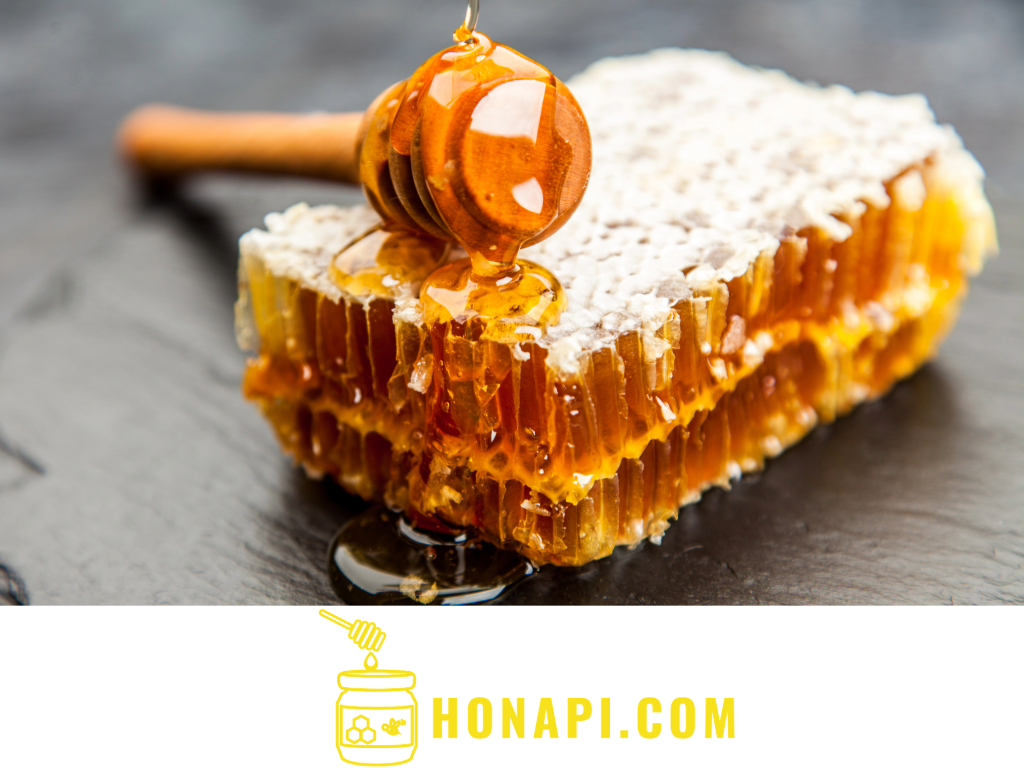
What are the benefits of eating honey every day
Share
Why a spoonful of honey daily is a must have
Honey is rich in antioxidants, which help fight free radicals that can damage cells and contribute to chronic diseases.
It also contains prebiotics, which promote the growth of good bacteria in your gut, leading to a stronger immune system.
1. Natural Energy Source
The natural sugars in honey provide a quick source of energy. Honey is rich in natural carbohydrates, mainly fructose and glucose. These natural sugars are easily absorbed by the body and provide a fast and long-lasting source of energy. It's a great choice for people who need an energy boost before exercise or for people who suffer from chronic fatigue.
2. Promoting food digestion and absorption
Honey is a remarkable ally for improving digestive comfort. Honey has prebiotic properties, meaning it feeds good bacteria in the gut. By acting as a prebiotic, like garlic, onion or bananas, it helps preserve the intestinal flora. Transit is improved thanks to this natural laxative. This can help improve digestion and prevent digestive disorders like constipation and diarrhea. Honey can also help relieve stomach ulcers and soothe an upset stomach. Instead, opt for acacia, rosemary or thyme honey, known for their effectiveness on the stomach and intestines. Feel the benefits on your digestive system by taking a small amount of honey in the morning on an empty stomach.
3. Antibacterial and antioxidant properties
Your body contains free radicals responsible for aging, impairing cell function, and causing heart and blood vessel disorders. Honey and other antioxidant-rich foods can protect you against such and other chronic conditions. Honey is rich in antioxidants, which protect cells against damage caused by free radicals. This can help prevent certain chronic diseases like cancer and heart disease. Honey also has antibacterial properties that can help fight infections and strengthen the immune system.
4. Soothed Cough and Sore Throat:
Honey's natural antibacterial and anti-inflammatory properties can help ease the discomfort of coughs and sore throats.
5. Improved sleep quality
Honey can help improve sleep quality by promoting the production of melatonin, a hormone that regulates sleep. Honey can also help reduce anxiety and stress, which can disrupt sleep.
6. Skin benefits
Honey can be used as a natural facial mask to moisturize the skin and give it a healthy glow. Honey also has antibacterial properties that can help fight acne and other skin infections.
7. Boost your performance
Honey is one of the most popular foods in sports nutrition; boosting energy thanks to sugar. Glucose and fructose do not need to be digested before absorption, the effect is immediate! Enough to naturally improve sports performance. Daily consumption of honey helps prevent fatigue and boosts your energy. Rich in vitamins, numerous minerals and trace elements, it allows you to stay in shape for the day in a natural way. Choose chestnut, fir or rapeseed honey for the best results.
Risk of Infant Botulism:
- Honey can contain spores of the Clostridium botulinum bacteria, which can cause infant botulism, a serious and potentially fatal illness.
- Baby's immature digestive systems lack the necessary defenses to combat these spores, making them highly susceptible to this illness.
- Symptoms of infant botulism include constipation, muscle weakness, floppy movements, difficulty feeding, and breathing problems. Seek immediate medical attention if you suspect your baby has ingested honey.
Precaution Tips:
- **Absolutely do not feed honey to babies under 1 year old. This includes:
- Raw honey
- Pasteurized honey
- Any food or drink containing honey (e.g., honey-sweetened cereal, yogurt, formula)
- Even after reaching 1 year old, honey should be introduced gradually in small amounts.
- Wash your hands thoroughly before preparing food for babies, especially if you've handled honey.
- Be mindful of processed foods that may contain hidden honey (check labels carefully).
- Always consult your pediatrician before introducing any new food, including honey, to your baby's diet.
Recommended amount of honey per day
The recommended amount of honey per day is approximately one tablespoon. You can add honey to your tea, yogurt, cereal or fruit. You can also enjoy it on its own or use it as an ingredient in cooking recipes. In summary, there are many reasons to eat honey every day. It is a natural and healthy food that offers many health benefits.
